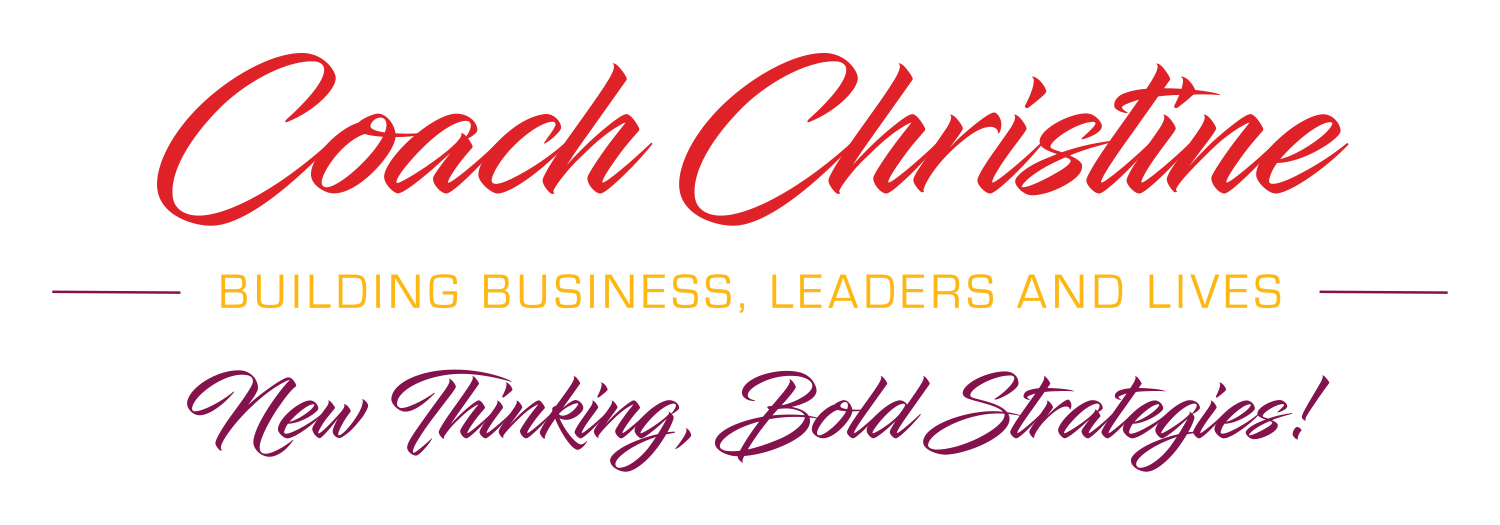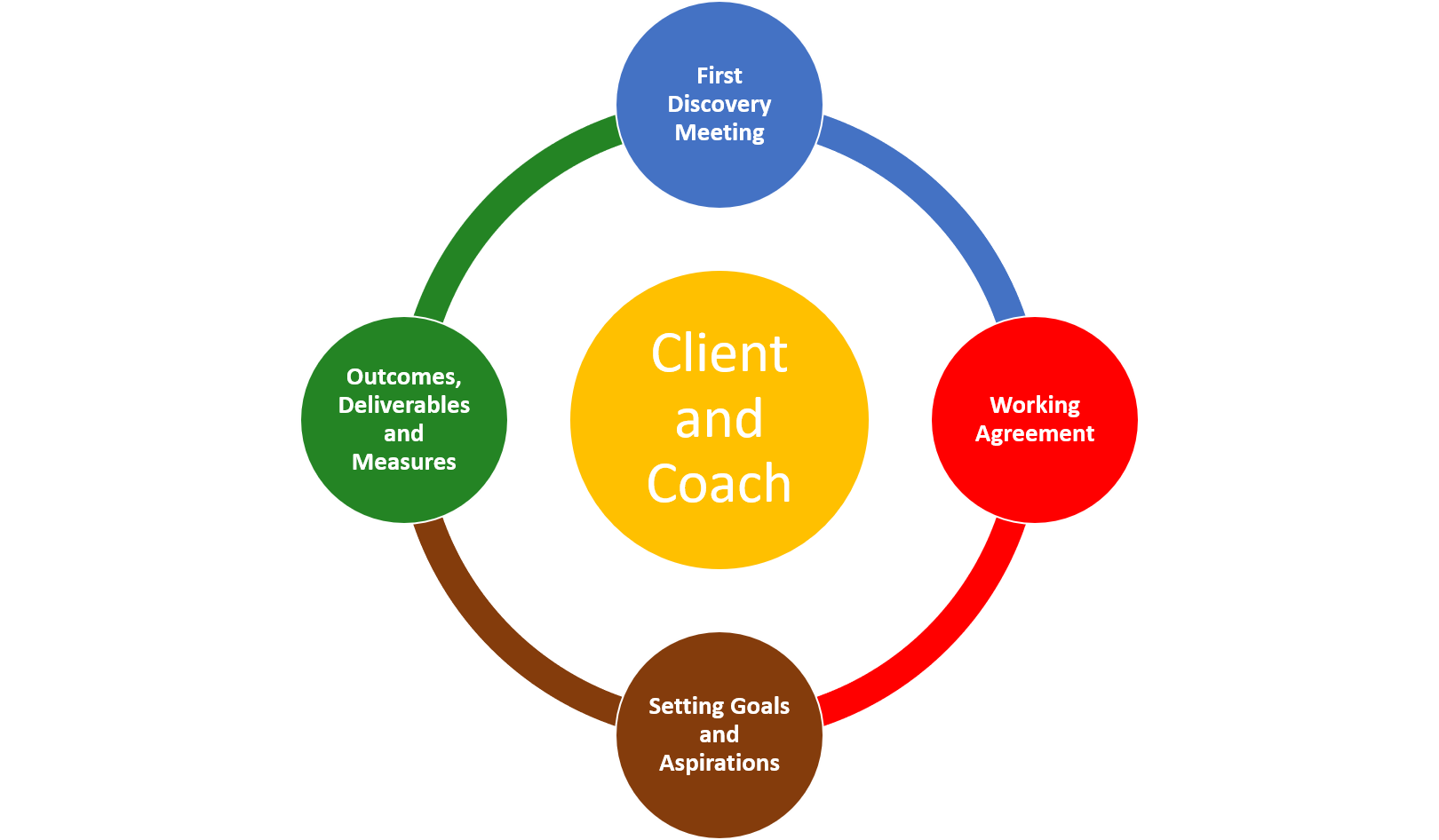
The job offer you’ve been expecting has finally come, and you are excited beyond words, but once that initial moment of euphoria passes, you may start wondering about whether you will actually fit in at the new place of employment.
One major question you may ask is whether your future employer has the same values as you and how those values will play into your efforts to fit the organization’s corporate culture.
One way to identify a company’s core values is by taking a hard look at the people who work there. Above all, trust your gut. If it doesn’t feel like a good match for you, it probably isn’t.
Initially published through Forbes Coaches Council
POST WRITTEN BY Expert Panel, Forbes Coaches Council
To help, 10 members of Forbes Coaches Council explain how a working professional can decide if the company that has given them a job offer is in line with their values:
1. Ask Direct Questions
Determining whether to accept a job offer can be difficult. I believe the interview process should be a bit two-way. Both parties must be happy with the decision made. Don’t be afraid to ask direct questions. Ask why the position is vacant. Why did the person before you leave the position? The answer to this question can give you great insight about that company. – Mika Hunter , Female Defender
, Female Defender
2. Check Their Reviews
We have the privilege of living in the internet era. You can find online reviews about almost everything, including companies. Visit Glassdoor and have a look at what current and former employees have to say about the company. You will learn information not found on their website or shared in the interviews. If you read something worrying, discuss it with the company before you join them. – Caterina Kostoula , The Leaderpath
, The Leaderpath
3. Speak To More People
If, at the end of the interview process, you do not have enough information to make a decision, continue to ask questions. Let the company know that you want to speak to additional people. Asking questions is even easier after you have the offer. If you are unsure after speaking to others, I would pass (assuming you have other options). –Donald Hatter , Donald Hatter Inc.
, Donald Hatter Inc.
4. Go With Your Gut
There are many theories about “best fit” and research you can and should do as a candidate. However, the little voice inside you knows. That’s your gut instinct. Think of a time when you went against your inner judgement and afterward thought, “I knew all along but didn’t listen to myself.” Use all of your tools, analyze your information, and tune into and listen to your gut feeling. – Christine J. Culbertson (Boyle) , Coach Christine: Building Business, Leaders and BIG Lives
, Coach Christine: Building Business, Leaders and BIG Lives
5. Assess Culture Fit
First, articulate your values. List them in three categories: must haves, should haves and could haves. Then have a good understanding of the company’s culture by going to Glassdoor, LinkedIn, Inhersight (particularly for women), etc., and talking to at least five employees for a more objective view. Then, evaluate. Full alignment is great. Otherwise, they should at least meet your must-have values. – Amy Nguyen , Happiness Infinity LLC
, Happiness Infinity LLC
6. Leverage Social Media
People are more transparent than ever online. In addition to reading review sites, such as Glassdoor, check out social media profiles of company leaders. Read up to see what interests them, the content of their posts, who responds to them and whom they influence. This can tell you what they value and emphasize. If they bring up hot-button topics, these will probably also arise at work. – Laura Smith-Proulx, CCMC, CPRW, CIC, COPNS, CTTCC , An Expert Resume
, An Expert Resume
7. Do Thorough Research Upfront
Research is a crucial part of creating an effective match between you and a company. It is imperative to find out as much as possible about a company’s values, culture, organizational structure, financials and growth opportunities before you decide to accept a job offer. Skipping upfront research may end up costing you and the company unnecessary time and money if the match falls through. – Lillian Gregory , The Institute for Human and Leadership Excellence
, The Institute for Human and Leadership Excellence
8. Know Your Own Satisfaction Drivers
If you have an offer, you should have already had many interview stages to get a sense of fit and whether you understand the goals and needs of the company. It’s your responsibility to ask questions along the way and to do your own research. Know your own satisfaction drivers. Ask about expectations, mission, communication styles, performance measures and what kinds of people are successful here. – Joanne Markow , GreenMason
, GreenMason
9. Ask The Experts
The best way to discover if a company’s values are in alignment with your own is to ask the people who know best: your potential future co-workers. It is completely appropriate to ask if you can meet with some potential team members to gain insight on the role and determine how the company is living their values as experienced by their employees. They will be the experts with real-world knowledge. – Tonya Echols , Thrive Coaching Solutions
, Thrive Coaching Solutions
10. Find Out If They Live Their Slogans
Most companies have cute slogans and phrases on their websites. You should ask if they are real or only skin-deep. One way to find out is to connect to those who may have left the company. Not all are negative. Some may give you reasonable pros and cons of working there or their insights into how to start and build your career. Ask them in so many words if the company practices what its slogans preach. – John M. O’Connor , Career Pro Inc.
, Career Pro Inc.
Meet Coach Christine
Christine coaches with ROI top-of-mind. Many companies who leverage her coaching produce quick and long-lasting results transforming people, processes and culture, impacting their bottom line. Clients have seen upward of 200% ROI.
Her time with clients generates powerful results in:
- Business and Personal Development
- Communication and Relationships
- Sales and Sales Leadership
Watching and learning at the feet of titans of Canada’s Wall Street and other business leaders, Coach Christine was influenced by their success and built a corporate career and coaching business founded on proven business practices.
She is an award-winning business woman and contributor to Forbes publications; is an accredited coach with the ICF; a practitioner of Conscious Business practices; is certified by the IMPACT: Coaching with ROI program; holds her First and Second Degree Reiki and has studied Aboriginal healing for over 20 years. Christine loves the adventure of travel and has a knock-out collection of snazzy women’s shoes.
When you want more, are ready to bust obstacles and build your juicy, big life, contact me, Coach Christine Culbertson.
Together we’ll step into your untapped potential.
YES! I Want More!

The hectic holiday season usually comes with plenty of distractions that can make it hard to focus at work. You may be dreaming of sugar plums and presents when you should be focusing on the task at hand.
As difficult as it may be to focus on your responsibilities at work, you can make the most of the last few weeks of the year by keeping your tasks firmly set in your mind.
Initially published through Forbes Coaches Council
POST WRITTEN BY Expert Panel, Forbes Coaches Council
Below, 15 members of Forbes Coaches Council offer their best advice for staying focused and on-task at work during the busy holiday season. Here’s what they recommend:
1. Schedule Time For The Fun Stuff
Rather than squeezing in time for family and friends, make time to enjoy the holiday season. Schedule time to shop, brunch and other activities that make the season enjoyable so that, when you sit down to work, you are not preoccupied with thoughts of sneaking away. It should also help to eliminate the guilt of having those fun days because you know you’ve planned time to complete your work. – LaKesha Womack , Womack Consulting Group
, Womack Consulting Group
2. Prioritize And Set Expectations
The holidays are a time to connect and celebrate, yet work demands increasingly compete for time. There are two keys to tackling this season: prioritize and set expectations. First, prioritize the schedule, say “no” to meetings that eat up valuable work time and say “yes” to chunking time to focus and execute. Second, set expectations with co-workers for uninterrupted time or collaboration time. – Carry Metkowski , Carry Metkowski
, Carry Metkowski
3. Develop Better Communication Skills
Talking is not the same as communicating and not everyone sends and receives communication in the same way. Ineffective communication can lead to procrastination, unaccomplished goals, poor scheduling abilities, lack of effective delegation and interruptions. Watch a webinar on behavioral styles and their communication preferences so you can communicate more effectively at work. – Kathi Graham-Leviss , XBInsight, Inc.
, XBInsight, Inc.
4. Set A Holiday Battle Plan
Before you quit for the evening, make a list of five things that support your immediate objectives for the holiday season and be okay with just getting the first two or three done. It’s the holidays, so give yourself a break and still feel good about what you accomplished, because you are focused and directed internally to get your tasks done. – Mitch Russo , Mindful Guidance, LLC
, Mindful Guidance, LLC
5. Don’t Lose Your Productive Routines
Most often, people get off track during the holiday season because they make excuses for distractions and time suckers in which they wouldn’t normally engage; eating too much can cause havoc with your body and you may lose sleep, and staying up later results in less energy the next day and, then, less productivity. While you can enjoy the holidays, be mindful of what your “extra” activities may cost. – Cha Tekeli , Chalamode, Inc.
, Chalamode, Inc.
6. Distinguish Between Urgent And Important
At year-end, projects come due right when we’re at our busiest outside of work. To meet your commitments and stay sane, laser-focus on mission-critical activities. To help prioritize, expand your thinking beyond end-of-year deadlines to what will have the biggest impact in the longer term. Are you cramming stuff in just to get it done? Distinguish between truly important activities and those that feel urgent. – Caroline Adams , Career Change, Transition, and Advancement
, Career Change, Transition, and Advancement
7. Don’t Overcommit
If you are an overachiever like me, you will want to do everything during the holidays. The fact is you just can’t. Pick key events, parties and engagements to avoid burnout. Stay focused by not overcommitting. It’s a fantastic time of year to network, but prioritize your events based on ROI. You still have deadlines to meet and customers to please, so be realistic and don’t forget to have fun. – Erin Urban , UPPSolutions, LLC
, UPPSolutions, LLC
8. Take ‘Mini-Holidays’
During November and December, for the first or the last 30-60 mins of my workday, I drink coffee with eggnog, light candles and play holiday music I like. I give myself the gift of reading a book at least once a week during working hours, snuggled up with a cozy blanket and tea. I am still working, but I have a focus on reflection, learning and self-care. This is my gift to myself. – Courtney Feider , Courtney Feider, LLC
, Courtney Feider, LLC
9. Establish Positive Habits
The holidays are crazy, as the work and commitments are piled up. You need to create and maintain positive habits to manage the stress that will come from it. Plan your goals for November and December, be conservative and concentrate on the big rocks. Then, leave a lot of empty space in your planning to handle the upcoming unknowns. Be diligent, limit your commitments and be prepared for the rush. – Tony Mickle , Big Box Coaching
, Big Box Coaching
10. Know Your Limits And Set Boundaries
Knowing your limits and setting boundaries are key steps for managing holiday stress and overwhelm. Stephen Covey’s four quadrant tool will help you prioritize your to-dos, giving you focus and a roadmap to follow. Now you have clearly defined priorities to communicate with your team and colleagues. – Christine J. Culbertson (Boyle) , Coach Christine: Building Business, Leaders and BIG Lives
, Coach Christine: Building Business, Leaders and BIG Lives
11. Choose Your Distractions
Creating a routine and following it consistently creates physiological energy spikes that can fuel us to power through a particular task in spite of distractions. Repetition of the routine trains our brain to reproduce that focus and keeps us operating at our peak. Distractions come in all shapes and sizes and often without warning. Be mindful of when you are most productive. Then, knuckle down. – Tracey Grove , Pure Symmetry Coaching and Consulting
, Pure Symmetry Coaching and Consulting
Meet Coach Christine
Christine coaches with ROI top-of-mind. Many companies who leverage her coaching produce quick and long-lasting results transforming people, processes and culture, impacting their bottom line. Clients have seen upward of 200% ROI.
Her time with clients generates powerful results in:
- Business and Personal Development
- Communication and Relationships
- Sales and Sales Leadership
Watching and learning at the feet of titans of Canada’s Wall Street and other business leaders, Coach Christine was influenced by their success and built a corporate career and coaching business founded on proven business practices.
She is an award-winning business woman and contributor to Forbes publications; is an accredited coach with the ICF; a practitioner of Conscious Business practices; is certified by the IMPACT: Coaching with ROI program; holds her First and Second Degree Reiki and has studied Aboriginal healing for over 20 years. Christine loves the adventure of travel and has a knock-out collection of snazzy women’s shoes.
When you want more, are ready to bust obstacles and build your juicy, big life, contact me, Coach Christine Culbertson.
Together we’ll step into your untapped potential.
YES! I Want More!

Do you think a star athlete has a super coach behind them?
Sports stars and titans of business alike leverage the knowledge, experience and unique skill sets of professional coaches.
Photo courtesy of Forbes Coaches Council and Shutterstock and a version of this article was originally published through Forbes Coaches Council.
A coach is your sounding board, your confidant and your safe place to grow and explore, to challenge yourself and see yourself in ways perhaps you take for granted or cannot yet see in yourself. You and your coach peek under the covers and do a bit of navel gazing. They’re working with you to meet your goals, holding you accountable and supporting you when you stumble. They’re also your champion and cheerleader, standing beside you, celebrating you and your wins. It sounds amazing, doesn’t it? Coaches can be like your secret silent partner, tucked away in your back pocket.
Coaches offer services on many topics, with some specializing in areas like leadership, business, communication, work and life fit, health or wellness, while others are generalists.
The opportunity to find a coach to fit your needs is limitless, so how do you find the best coach for you? First, let’s take a look at some of the exciting changes that are happening in the profession.
Real Or Make Believe?
Recently, the Federal Trade Commission (FTC) launched an investigation and is taking fraudulent coaching practices to court: a move strengthening the coaching profession.
Coaching is a relatively new profession, and more and more, coaches are becoming certified with credible organizations like the International Coaching Federation, which offers a registry where you can check a coach’s credentials.
where you can check a coach’s credentials.
Your Coaching Checklist
Are all coaches equal? Unfortunately not — so here are some proven ways to help you navigate hiring the best coach to get the results you want and deserve.
Credentialing And Credibility
1. What is their professional designation? This is important to know, as you want to work with a coach who’s received credible professional training and accreditation.
2. Where did they study? As there are many ways to obtain coach education, be sure to ask what school they attended so you can assess the depth and quality of their education.
3. What are their professional affiliations? Beyond their studies and accreditation, ask what organizations they belong to. Are they members of a local business board of trade or other professional associations or volunteer organizations? This will give you a sense of who the coach really is and their broader interests.
Assessing Expertise
1. How long have they been in practice? Are they a seasoned veteran or new to the profession? What level of experience is important to you as you select your coach?
2. Do they have an informal coaching background? It’s good to know if the coach has informal experience through special projects in the workplace or with volunteer organizations.
3. What is their area of expertise, and how long have they been specializing? You’re looking for the best fit for you, with personality matching and experience at the top of the list. Many coaches specialize in a particular field, like work-life balance, career transitions, stress management, business and professional coaching.
4. Is contacting their current clients possible? References are best checked and verified. Be prepared in advance and have your questions ready. This is a valuable way to gain a clearer understanding of the coach and how they work with their clients.
5. Are peer and colleague reviews available? Who does the coach associate with, and how do their fellow coaches hold them in regard? As we generally interact with similar, like-minded people, this knowledge will help you to see their broader circle of influence.
Peeking Behind The Curtain
1. Request a sample session and test-drive the coach so you have a real and live experience.
2. Did the session meet your needs? Were you comfortable?
3. Were you the primary focus or was the coach too self-focused?
4. Did you arrive at the session with a topic, and was your goal met?
The Fine Print
1. Do they have professional errors and omissions (E&O) insurance? This is another measure of their professionalism and commitment to their business and to you, the client.
2. Is there an agreement you can preview? Transparency is tops, so be sure to ask about important items, like payment terms, cancellation policies and confidentiality.
3. Ask for a link to their code of conduct and standards of ethics.
4. Listen to your intuition — what’s your gut telling you? Is this coach the best fit for you? If not, who can they refer you to?
Now What?
If there’s a fit, and you agree to work together, the flow might look something like this:
Do you need to be a titan of business to hire a coach? Heck, no. Us ordinary folk benefit from coaching, too. Many people come to coaching because they are already successful and want more, and I hope these tips are valuable to you as you explore your untapped potential and search for your professional coach.
Download your Coaching Checklist.
Meet Christine
Christine coaches with ROI top-of-mind and clients have seen upward of 200% ROI. Many companies who leverage her coaching produce quick and long-lasting results transforming people, processes and culture, impacting their bottom line.
Her time with clients generates powerful results in:
- Business and Personal Development
- Communication and Relationships
- Sales and Sales Leadership
Watching and learning at the feet of titans of Canada’s Wall Street and other business leaders, Coach Christine was influenced by their success and built a corporate career and coaching business founded on proven business practices.
She is an award-winning business woman and contributor to Forbes publications; is an accredited coach with the ICF; a practitioner of Conscious Business practices; is certified by the IMPACT: Coaching with ROI program; holds her First and Second Degree Reiki and has studied Aboriginal healing for over 20 years. Christine loves the adventure of travel and has a knock-out collection of snazzy women’s shoes.
When you want more, are ready to bust obstacles and build your juicy, big life, contact me, Coach Christine Culbertson.
Together we’ll step into your untapped potential.

Email newsletter campaigns can be an efficient and affordable way to keep consumers updated on your brand. You can share information about new products or services, spread word about company events, and connect with your audience on a more personal level.
The challenge, of course, is that your subscribers’ inboxes are already overflowing. Your emails have to provide true value to cut through the clutter and get opened.
Initially published through Forbes Coaches Council
POST WRITTEN BY Expert Panel, Forbes Coaches Council
Build Your List
Every sale comes from a list. The first priority of creating and distributing a newsletter is to build an audience of people that would be interested in what you have to say. Build a list one name or person at a time. Work on building your list every day, then treat the list with respect, and value the people who desire to listen to your content. – Ken Gosnell, CEO Experience
Get Your Community To Contribute
Newsletters tend to be one-way conversations. But within your community, there is a vast richness of knowledge and experience. We’re inviting our community to join a “contributors list” where we post questions and ask for their advice and tips. These will be shaped into articles and blog posts shared via our newsletter. We’re anticipating a much higher open rate. – Gabriella Goddard, Brainsparker Leadership Academy
Understand The Value You’re Providing
Notice the communications you receive. Skim through and compare to others you look forward to and relish. What’s the difference? Valuable content. One hits the mark for you while the other is boring or irrelevant and not worth your time. Why do people want to hear from you? What do you offer that’s worth their time? Focus on this and you’ll provide valuable content. – Christine J. Culbertson (Boyle), Coach Christine
Try Video Content
Create a video newsletter instead of email. Your audience will thank you. In terms of length, keep it under two minutes for the greatest engagement and distribute via a brief permission-based text message that specifies how long the video is, with a direct link to the video so they can see it from their phone. Short and simple is best! – Ashley Good, Ashley Good Coaching & Consulting
Share New Insights To Old Challenges
My top tip for creating and distributing a newsletter includes glitz, glamour and substance. Since there is so much data in our lives already, it is important for newsletters to create a sense of exclusivity in readers by sharing new insights to old challenges through unique content. Merely repackaging information that circulates around the internet is a sure way to turn off your audience. – Lillian Gregory, The Institute for Human and Leadership Excellence
Make It Feel Like A Conversation
My top tip is to use the newsletter to start two-way conversations. Use a tool that allows you to track readers, then follow up with them. You might send a thank you note to consistent readers or ask them how your tip resonated. When someone replies with a comment or appreciation, write back. It’s such a terrific way to begin a conversation, but too often the opportunity to engage is overlooked. – Kelly Tyler Byrnes, Voyage Consulting Group
ShareTips, Not Sales Pitches
Top tip for creating a newsletter: Don’t create a newsletter. Nobody really likes or reads them. Create a weekly or monthly tip and call it so, and don’t sell anything. Everyone is looking for tips. Provide valuable content (don’t sell) and distribute it consistently. I’ve been providing my following a “Leadership Tip of the Week” for eight years. It has become my best salesperson. – Randy Goruk, The Randall Wade Group, LLC
Establish A Consistent, Appropriately Frequent Schedule
Of course, you have an important message to share, but it may not be the most important thing in the life of your subscribers and fans. Bear this in mind, and establish a regular and consistent rhythm (maybe monthly, bi-monthly, or quarterly) so you aren’t filling inboxes, and what you lack in frequency can be made up for in quality. – Billy Williams, Archegos
Include A Clear Call To Action
When it comes to creating and distributing a newsletter, clearly identify your call to action and be repetitive. State what you want the recipient to do, provide simple instructions and offer an incentive to those who take action. Most newsletters that do not have a clear call to action are left unread. – A. Margot Brisky, ELDA4U, LLC
Make It Fun
I used to see writing my newsletter as a chore. I outsourced it to my virtual assistant. And then, I decided I needed to make writing my newsletter fun. I started talking to my list as I would to a friend. I shared my learnings and my struggles. The newsletter content was exclusive, not published anywhere else. I was writing to my tribe. The engagement skyrocketed. – Caterina Kostoula, The Leaderpath
Evaluate Whether You Need A Newsletter
If an email newsletter isn’t right for your marketing, you shouldn’t waste your time creating one. A newsletter is a marketing tactic that should support a marketing strategy. Examine your business goals. What are you trying to achieve? Increase number of leads, better qualify leads, nurture prospects, retain more customers or something else? Create your communication piece with the end in mind. – Michela Quilici, MQ Consulting and Business Training, Inc.
Meet Coach Christine
Christine coaches with ROI top-of-mind. Many companies who leverage her coaching produce quick and long-lasting results transforming people, processes and culture, impacting their bottom line. Clients have seen upward of 200% ROI.
Her time with clients generates powerful results in:
- Business and Personal Development
- Communication and Relationships
- Sales and Sales Leadership
Watching and learning at the feet of titans of Canada’s Wall Street and other business leaders, Coach Christine was influenced by their success and built a corporate career and coaching business founded on proven business practices.
She is an award-winning business woman and contributor to Forbes publications; is an accredited coach with the ICF; a practitioner of Conscious Business practices; is certified by the IMPACT: Coaching with ROI program; holds her First and Second Degree Reiki and has studied Aboriginal healing for over 20 years. Christine loves the adventure of travel and has a knock-out collection of snazzy women’s shoes.
When you want more, are ready to bust obstacles and build your juicy, big life, contact me, Coach Christine Culbertson.
Together we’ll step into your untapped potential.
YES! I Want More!

POST WRITTEN BY
Expert Panel, Forbes Coaches Council
Top business and career coaches from Forbes Coaches Council offer firsthand insights on leadership
Delegation is a necessary practice for entrepreneurs, who juggle countless responsibilities each day. However, not every business owner is comfortable handing over their reins to team members, regardless of how much they might trust their workers.
Letting go of control over certain areas of your business might make you feel uneasy, but it’s crucial to giving yourself more time to improve and grow your brand. To help you, our expert panel of Forbes Coaches Council members offered their best advice for entrepreneurs who don’t like to delegate.
Start Small And Check In Early
Trusting someone else with your baby (business) is not always easy. Start building the muscle of delegation by delegating small tasks to your team, but check in early in the process to make sure they are on track. Your teammates will appreciate your trust, and you will free up your time to focus on other areas for the good of everyone. – Billy Williams, Archegos
Delegate Your Least Favorite Thing
Identify the areas you feel least confident about (or interested in) doing yourself. The best way to encourage delegation is to focus on an area where you don’t have expertise because these tend to be projects you will more willingly relinquish control over and be somewhat forced to develop trust in others because you don’t have the time or skills manage it directly or effectively. – Tonya Echols, Thrive Coaching Solutions
Check Your Ego At The Door
I often ask over-involved leaders to explore the trick their ego may be playing. Holding onto work that others could and should be doing can be a sign of coming from a “better than” place. It can look to others like an arrogance or ego that is seemingly demeaning and dismissive to others. If that is not their intention, and it most often is not, this new self-awareness can shift their perspective. – Julie Colbrese, Hot Coffee Coaching
Treat Delegating As A Leadership Activity
Leaders who avoid delegating often are looking at it as a management activity, rather than a leadership activity. Our role as leaders is to provide learning and growth opportunities to stretch team members. If our people don’t make mistakes, we’re not providing challenging situations for them to learn and grow. Change your thoughts and beliefs about delegating and it will be easier to let go. – Laurie Sudbrink, Unlimited Coaching Solutions, Inc.
Ask Yourself If You Want Control Or Growth
Many entrepreneurs don’t grow because they are unwilling to get out of their own way. Their way often focuses on control, micromanagement and oversight. After all, that’s how they got to where they are, so they often believe it will be how they get to “the next level.” But therein lies the problem. If the entrepreneur wants to grow, it’s imperative they trust others. – John M. O’Connor, Career Pro Inc.
Figure Out What You’re ‘Getting Paid’ To Do
Frame delegation with this perspective: What do you get paid to do? Many entrepreneurs spend their time completing tasks others are paid to do and could do more efficiently — if given the opportunity. List what only you can accomplish and what is the most valuable way to spend your day. If you are bootstrapping, this becomes even more critical: What are you paid to do — or not? – Leila Bulling Towne, The Bulling Towne Group, LLC
Conduct A SWOT Analysis
So often, I coach entrepreneurs who want to hold on to everything because they “love what they do and don’t mind long hours.” But a funny thing happens when they do a SWOT (strengths, weaknesses, opportunities and threats) analysis. The realization that they can’t focus on the prize if they are doing all the jobs is an eye-opener. You have to let go to focus on your own ROI. – Laura DeCarlo, Career Directors International
Practice Delegation As A Daily Habit
Good habits are hard to create, and creating a good habit starts with awareness. First, take three minutes at the end of each day and jot down what tasks/projects you worked on that day that you could have delegated. Do this for a couple of weeks and this will give you a list of things to delegate going forward. Then figure out who has the skill, time and passion to do that task well. – Cindy Pogrund, Paradigm Pursuits
Consider The Cost Of Delegation Versus The Potential Business Gains
Make a list of all the things you do. Methodically ask your HR manager, or research yourself, what the hourly cost would be to hire a person to do the job. For example, if you like to do the bookkeeping, the hourly rate might be $35 an hour. Now, identify where your time is best spent. You can spend three hours networking at an event where you close a deal for $3,000 — that’s $1,000 an hour. – Rick Itzkowich, Vistage Chair San Diego
Match Your Tasks To Your Team
To gain comfort with delegating, do your best to match the task or skill to a team member who either has that skill set or who would like to grow into that skill and get practice doing that task. This will not only ease your workload and burden, it will also help develop your people and show them that you as the leader care about their professional growth and illustrates how much you value them. – Lisa Downs, Downs Leadership
Create Standard Operating Procedures
There are three things that hold a person back from delegating and letting go of the reins. First, perfectionism and the need for it to be exactly right. Second, control and the need to micromanage all steps of every activity. Third, the fear of unknown. All of this is helped by creating a standard operating procedure document for every job, post and task. – Tracy Repchuk, InnerSurf Online Brand & Web Services
Experiment And Evaluate
Experiment by delegating one small task that has little consequence using this recipe for success: Give clear directions, set clear expectations, define timing, and assess the results: How did you feel before delegating and after? What worked? What didn’t? What will you do differently? Now, do it again and each time you refine your experience, you reduce risk and build successes. – Christine J. Culbertson (Boyle), Coach Christine: Building Business, Leaders and BIG Lives
Meet Coach Christine
Christine coaches with ROI top-of-mind. Many companies who leverage her coaching produce quick and long-lasting results transforming people, processes and culture, impacting their bottom line. Clients have seen upward of 200% ROI.
Her time with clients generates powerful results in:
- Business and Personal Development
- Communication and Relationships
- Sales and Sales Leadership
Watching and learning at the feet of titans of Canada’s Wall Street and other business leaders, Coach Christine was influenced by their success and built a corporate career and coaching business founded on proven business practices.
She is an award-winning business woman and contributor to Forbes publications; is an accredited coach with the ICF; a practitioner of Conscious Business practices; is certified by the IMPACT: Coaching with ROI program; holds her First and Second Degree Reiki and has studied Aboriginal healing for over 20 years. Christine loves the adventure of travel and has a knock-out collection of snazzy women’s shoes.
When you want more, are ready to bust obstacles and build your juicy, big life, contact me, Coach Christine Culbertson.
Together we’ll step into your untapped potential.
YES! I Want More!

Imagine overcoming obstacles
knocking down barriers and leading valuable
timely conversations that are a win-win for all
Originally published through the Forbes Coaches Council.
Winning-Ways and rich relationships that are robust and productive come from clear communication. What do we need to do and who do we need to be to become master communicators and have strong relationships?
We tend to first look at others’ behaviors and attitudes, but it is the skillful leader who first turns the lens within, discovering soft spots and ways to build and grow themselves. Becoming a leader whom others want to follow (like potential clients, colleagues or teams) is about understanding the needs and wants of others while meeting your needs and expectations.
Our first order of business is understanding our mindset and attitudes and the impact they have on our personal and professional lives. If you’re in a leadership position in business, or you’re a community builder or an entrepreneur, you too will find these grit- and grin-building tools valuable.
Compass Points
Your mindset is your belief of the world, how you perceive the world and how you fit into the world. It shapes your thoughts, forming beliefs, attitudes and behaviors that create your actions.
Psychologist Carol Dweck of Stanford University wrote about two mindsets . A fixed mindset is rigid in belief and action and believes that basic characteristics, like intelligence, are a measure of success or failure. There is a continual push to prove oneself, as failure is seen as a negative. On the other hand, the growth mindset is flexible, believes in hard work, seeks to excel and doesn’t avoid failure, using it instead to improve.
Obstacles and Opportunities:
Here are important questions to ask to help understand your obstacles and grow your opportunities:
- Which is your operating mindset?
- How does it serve you?
- What’s needed or possible to change or improve?
Your mindset is one of the points on your compass, but not the only one. A positive mindset leads to resilient, gritty behavior. Resilience works in tandem with a flexible mindset, where obstacles are course-corrections rather than roadblocks.
Attitudes and Impact:
Your attitude carries a lot of weight too. Preston Ni of Psychology Today talks about different negative attitudes and their impact on personal and professional life. Here are eight warning signs of harmful attitudes and how to bust obstacles and build your strengths:
- Negative self-talk: “I’ll never make quota.” “I just know I’m going to fail.” “No one is interested in my opinion.” Every time we send ourselves a negative message, we undermine our confidence and even self-sabotage our success. Pay attention to the messages you give yourself — find your grit and grin beyond negativity.
- Negative assumptions: Sometimes things go wrong. Traffic jams develop, spills happen, phone batteries die. None of these are inherently positive or negative but our response to them can be. Your choice of response can make you happier or more stressed and luckily your response is completely in your control.
- Negative comparisons: There will always be someone with a bigger car, a higher salary, a shinier watch or a bigger boat. If you constantly measure yourself against others, you will end up stressed, dissatisfied and depressed. Focus on your accomplishments!
- Negative ruminations about the past: We all have moments that we wish we could rewind and do over. If you botched a big presentation, instead of replaying it on a constant loop, learn from it and move on. Focusing on past failure prevents you from seeing new possibilities. Be resilient, own the past and keep moving forward.
- Dealing with difficult people: Some people are jerks, bullies or have made passive-aggressive behavior an art form. They intimidate, threaten, manipulate facts and situations and often take advantage of others. What’s the point in fighting them, right? They always win. Except, they don’t. Instead of reacting and feeling like a victim, you can learn to use strategies and techniques to counter their behaviour and stay in control.
- Blaming: We all know people who deflect responsibility to anyone but themselves. They are late for a meeting because the guy in the car in front of them was driving too slow, not because they didn’t allow extra time for delays. It’s often easier to blame someone else than to take ownership and accountability, but it leads to bitterness and resentment. Take ownership of your choices and actions.
- Neglecting to forgive yourself: Mistakes happen. Learning to forgive yourself for past mistakes can be difficult. As Ni says, “There may be an accompanying sense of self-blame at the blunders made, damage done or opportunities missed. You might think of yourself as a ‘bad’ or ‘flawed’ person and wallow in guilt. During these moments, it’s extremely important to be compassionate with yourself, knowing that now that you’re more aware, you have a chance to avoid repeating past mistakes, and to make a positive difference with yourself and others.”
- Fear of failure and making mistakes: Taking a risk and stepping out of your comfort zone can lead to great new opportunities or spectacular failure. The fear of making a mistake and failing is often tied to perfectionism. Setting high standards can be motivating and, with a flexible mindset, mistakes are opportunities to learn and course-correct. The fear of failure can be debilitating or motivating. What would you do if you weren’t afraid?
Being a leader whom others want to follow takes personal grit and strength
Though it may sound challenging, it’s very doable. Our greatest strengths are being resilient, having a growth mindset and a positive, can-do winning attitude. Take time to discover your soft spots and grow them. And remember to celebrate your strengths and Winning-Ways. Let’s keep you on track for more success and a bigger life.
Christine coaches with ROI top-of-mind. Many companies who leverage her coaching produce quick and long-lasting results transforming people, processes and culture, impacting their bottom line.
Her time with clients generates powerful results in:
- Business and Personal Development
- Communication and Relationships
- Sales and Sales Leadership
Watching and learning at the feet of titans of Canada’s Wall Street and other business leaders, Coach Christine was influenced by their success and built a corporate career and coaching business founded on proven business practices.
She is an award-winning business woman and contributor to Forbes publications; is an accredited coach with the ICF; a practitioner of Conscious Business practices; is certified by the IMPACT: Coaching with ROI program; holds her First and Second Degree Reiki and has studied Aboriginal healing for over 20 years. Christine loves the adventure of travel and has a knock-out collection of snazzy women’s shoes.
When you want more, are ready to bust obstacles and build your juicy, big life, contact me, Coach Christine Culbertson.
Together we’ll step into your untapped potential.

, Female Defender
, The Leaderpath
, Donald Hatter Inc.
, Coach Christine: Building Business, Leaders and BIG Lives
, Happiness Infinity LLC
, An Expert Resume
, The Institute for Human and Leadership Excellence
, GreenMason
, Thrive Coaching Solutions
, Career Pro Inc.






